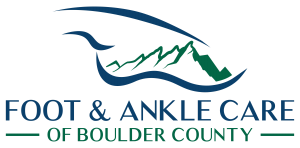EPAT® is a form of ESWT (Extracorporeal Shock Wave Therapy) which is an evidence-based, emerging, proven treatment option for patients suffering from both acute and chronic musculoskeletal injuries.
EPAT® is FDA cleared for the treatment of acute and chronic musculoskeletal pain and connective tissue disorders; there are no known risks or complications.
Examples of conditions treated with EPAT®:
- Plantar Fasciitis
- Achilles Tendonitis
- Posterior Tibial Tendonitis
- Anterior Tibial Tendonitis
- Plantar Plate Injuries
- Peroneal Tendonitis
- Interdigital Neuromas
Who is a candidate for EPAT® technology?
- We recommend EPAT® for acute injuries as it may allow for a faster recovery. It’s also recommended for patients with chronic injuries whom have failed to respond to other therapies.
- EPAT® allows our patients to avoid major downtime during treatment. It is also non- invasive and does not require any sedation of anesthesia.
- EPAT® is not recommended for patients on blood thinners, those with malignancies and those who are pregnant.
What should I expect from EPAT®?
Treatment is performed in the office and usually consists of 3 sessions on a weekly basis. Patients with more chronic injuries may require a 4th or 5th treatment & that will depend of your clinical course and response to treatment. EPAT is usually well tolerated. There is no need for sedation / anesthesia. A hand-held applicator along with topical gel is applied to the skin over each of the injured areas. Patients will then be exposed to a series of pulses, which will slowly be increased as tolerated to a therapeutic level during the session. Expect each session lasts 10-15 minutes. Patients are able to walk out of the office and resume normal weight bearing activities. There are no relative restrictions associated with EPAT treatment.
How do I prepare for an EPAT® procedure?
- It’s recommended patients discontinue all anti-inflammatories at least 1 week prior to the treatment with EPAT. Examples of anti-inflammatories- Ibuprofen (Advil/Motrin), Aleve.
- EPAT® produces an inflammatory response to start a healing cascade, so it is important to avoid anti-inflammatory medications.
- Tylenol is allowed since it is not an anti-inflammatory
**EPAT® is an elective pay modality and is not covered by insurance
